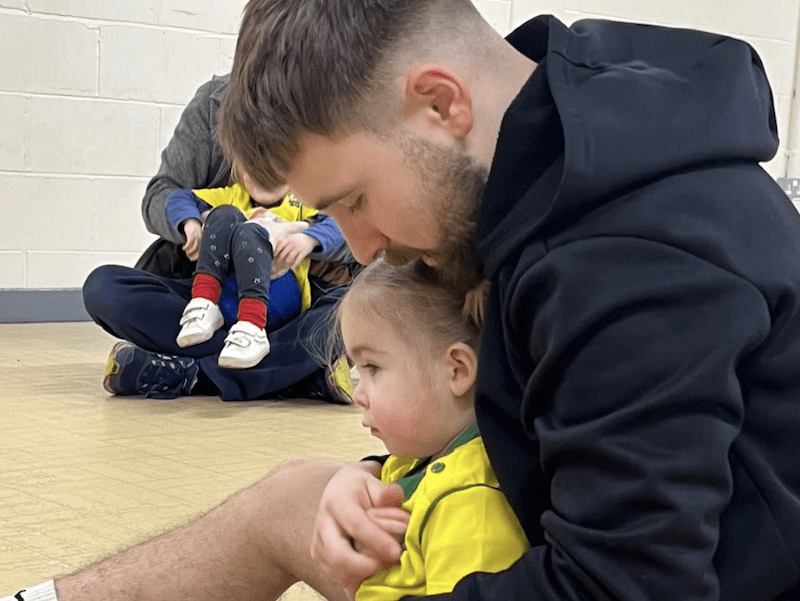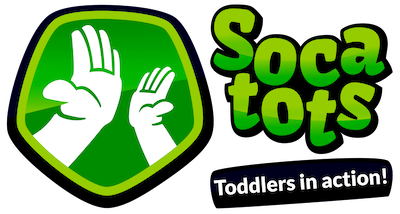When you are having a baby, you will want to know as much as possible about baby learning and development. Here, we will guide you through some of the ways that you can help your baby to learn and develop.
The first five years of your child’s life are of vital importance as this is when 90% of their brain development happens. From the very start of your child’s life, every moment you spend with them and engage with them is helping them to develop.
But, of course, there are specific things you can do to help your baby’s learning and development. Within this article, we will look at how you can help your baby to learn and develop throughout all the stages of their early life.

Age 0 to 3 Months
At 0 to 3 months your baby will be beginning showing signs of early cognitive and physical development. Within this section, we will look at these early milestones and how you can help them reach them.
Cognitive Development
At this early stage in the development, your baby will be listening as you speak and learning about language. They will start to be able to differentiate between sounds of the language and sounds that they have never heard before.
This is also the stage where they first begin engaging in social interaction with you and you will begin to see the first hints of a smile.
As part of their learning and development, this is the stage where your baby will begin imitating you. Babies learn and develop by copying the people in their environment.
How You Can Help
You can help your baby’s learning and development by speaking to them and singing to them whilst you do daily activities such as feeding them and changing their nappy.
Taking them outside will also be hugely beneficial as they will hear different sounds for your baby to encounter and explore. Whilst you are out and about, again talk to your baby. Tell them about what they can hear and see.
As they begin to engage with you by attempting first smiles, smile back! This will encourage this reflex action to become a deliberate act that they can use to respond to you.
Physical Development
At 0 to 3 months old, babies will start to kick their legs when they are lying on their back. They will move, roll and wiggle a lot at this early stage.
How You Can Help
First and foremost, it is important that you keep your baby safe during this early physical development. You need to be careful when changing your baby’s nappy and about where you leave them because they will be moving a lot
You can help your baby’s learning and development by doing things that encourage your baby to move and to reach out and respond to you in a physical manner. For example, blowing raspberries on their tummy.
It is also a good idea to give your baby some supervised tummy time. Tummy time is when you give your baby a small amount of time lying on their tummies. It helps them to get used to being in this position and helps them to understand how their bodies move.
Age 3 to 6 Months
At 3 to 6 months old your baby will be becoming more aware and their abilities will be further developing.
Cognitive Development
At this stage, you will begin to hear a lot of babbling from your baby. This will sound like cries, gurgles, laughs and cooing sounds but they are all intentional sounds. Your baby is beginning to practise all the sounds they have picked up over their first 3 months. This is an extremely important stage with regard to their later language development.
This is the stage where they begin to take in the wider world because they can now follow moving objects. For the first few months, your baby will only be able to focus on things that are very close to them but, at around 4 to 6 months, they will be able to see a little further and follow things that walk by them.
How You Can Help
At this stage, it is important that you continue to talk to your baby. They will respond back with their babbling and you can respond back to them. This will help with their language development and their communication and social skills as they will be practising skills they need to have conversations with people, even if they are not yet saying recognisable words.
Keep taking them outside and speaking with them about what you see. And begin to point out things in the surrounding area.
Physical Development
When they are 3 to 6 months old, your baby will want to sit in a supported position so they can see and explore what is around them. They will want to begin holding things themselves and will want to grab for their toys.
How You Can Help
To help your baby at this stage of their learning and development, it is a great idea to do some floor play with them. Floor play is very much like tummy time but you place objects around them so your baby is encouraged to reach out, to roll and to begin supporting their own body weight.
Age 6 to 9 Months
At 6 to 9 months, your baby will begin playing and exploring the world around them.
Cognitive Development
At this stage in your baby’s learning and development, they will begin to do more complex babble. Your baby will begin to put vowels and consonants together so you will begin to get sounds like “Ma ma” and “Da da”. This is the beginning of your baby beginning to form words.
This is also the stage where your baby will begin to recognise and respond to their own name. They will also begin to respond to words like ‘No’.
When it comes to playing, this is the stage where they will begin to respond to games and songs. They will also begin to understand object permanence and that objects still exist even if they can’t see them. This will change the way they interact with objects.
How You Can Help
You can help your baby’s learning and development by talking to them about what is happening and using simple words to describe what is happening. For example, at meal times, you could repeat the name of what they are eating.
When you are out with your baby, talk to them about what you can see. For example: “There is a duck. Ducks go quack, quack.”
Physical Development
This is the stage where your baby will begin weaning and eating and exploring other food. They will be learning to chew and to swallow whilst learning about different foods and textures.
Your baby will begin to pull themselves up at this stage on to all fours, showing the early signs of crawling.
How You Can Help
At this stage, you can help your baby’s learning and development by continuing with floor play and trying to not push too hard. Many parents begin to get their babies using walkers but many experts suggest these are only used for small periods of time.
This is also when you could begin exploring baby sports classes as this will keep them active whilst having fun. At our football classes, we accept children from as young as 6 months old.
Age 9 to 12 Months
When your baby hits the age of 9 to 12 months, they will begin to become more independent.
Cognitive Development
This is an exciting time in your baby’s learning and development as they will begin saying their first words. It can be hard to discern a first word amongst the baby babble but it is likely to come at any point from 10 to 18 months.
At this stage, your baby will begin to link words to objects and people. Whereas in the 6 to 9 month stage, they may have been saying the sounds “Ma ma” and “Da da”, they will have likely been saying them to anyone and anything. Now, they will recognise that the word relates to one specific person. This will take time though so don’t be upset if they use these words on other people.
They will begin doing further imitations of the people around them and they will begin performing social gestures such as waving to say hello or goodbye.
How You Can Help
You can help by simply talking with your baby and repeating words, such as when they are eating, repeating the name of the food they are eating. You could also make a game of things like getting dressed or talk them through the routine of getting dressed so they begin to recognise more words.
When you are out and about, pay attention to what is grabbing your baby’s interest and talk to them about it.
Physical Development
This is the stage where your baby will begin crawling or shuffling around on the floor. They may begin to pull themselves up and begin sitting without support.
From around nine months old, your baby will begin to develop pincer grip which is a fine motor skill where your child uses their thumb and forefinger to pick up objects.
Around 12 months old, your child will begin to get their first baby teeth.
How You Can Help
As they are moving more and developing their pincer grip, safety is even more important. Be aware of what is around them and try to prevent them from picking up anything small as this could be a choking hazard. Allow them to explore and to do things on their own but make sure they are in a safe environment.
How Can I Help My Baby Learn And Develop?
Your baby will learn and develop a great deal over their first year of their life. There are many things that you can do to help them but one of the most important is that you simply engage with them. Talk to them, sing to them, read to them and play games with them. All they really need is you to be there for them.
We hope you have found this article helpful. If your baby is 6 months+ and you would like to explore bringing them to our football classes, click here to find your local free taster session.
